Politics
One dead in shooting near mosque in Sweden
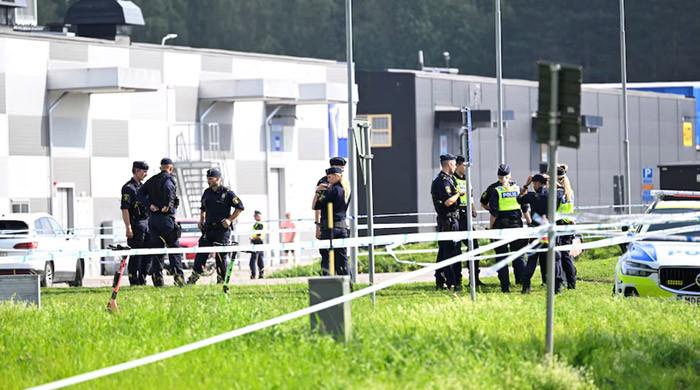
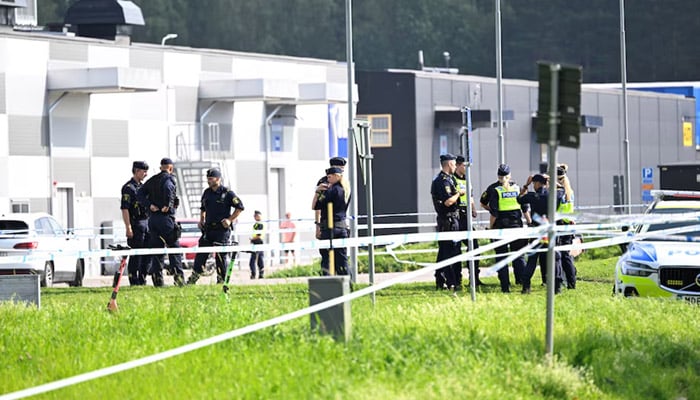
- Second person injured as shots fired outside mosque.
- Police continue search for gunman after Friday attack.
- Witness reports four to five shots fired rapidly.
One person was killed and another wounded Friday in a shooting near a mosque in southern Sweden, an attack police said they believed was linked to feuding organised crime gangs.
Local media quoted witnesses as saying at least one person was shot as he left the mosque in the town of Orebro, about 200 kilometres west of Stockholm.
Police said in a statement that a man “around the age of 25 died as a result of the wounds he suffered”. The condition of the second person was not disclosed.
Police provided no details about the deceased’s identity or the circumstances of the shooting, and urged the public to stay away from the scene as their search for the shooter continued several hours after the incident.
“We are currently actively pursuing the perpetrator or perpetrators,” police spokesman Anders Dahlman told AFP.
“We are interviewing witnesses and carrying out our technical investigation,” he said.
The shooting occurred as people were leaving the mosque after Friday prayers, sparking panic as people ran from the scene, local media reported.
One witness told Swedish public broadcaster SVT that he was standing just a few metres (yards) away from one of the men who was shot.
“He was on his way out of the mosque. Then another man came up and fired four, five shots,” said the witness, whose name was not disclosed.
Organised crime link
In a statement, police said they believed the incident was linked to Sweden’s “criminal network milieu”.
Police spokesman Lars Hedelin told daily Aftonbladet the shooting was likely an “isolated incident” and not directed at the mosque itself.
Police said initially they had opened a preliminary investigation into attempted murder, which was changed to murder after the man’s death.
The Scandinavian country, once known for its low crime rates, has struggled for years to rein in organised crime.
Criminal networks are involved in drug and arms trafficking, and welfare fraud, with regular shootings and bombings plaguing the country in recent years.
Police say the leaders of the criminal networks increasingly operate from abroad. They orchestrate murders and attacks via social media, often recruiting young children under the age of criminal responsibility to carry out the attacks.
According to the global database Statista, Sweden had the third-highest number of homicides involving firearms per 100,000 inhabitants in Europe in 2022, behind Montenegro and Albania.
Data from Sweden’s National Council for Crime Prevention show that while shootings have declined since the peak year 2022, the number of explosions has increased.
The town of Orebro was the scene of a school shooting in February in which 11 people were killed, including the perpetrator.
Politics
UAE leadership hosts public iftar in Dubai, projects message of unity, resilience
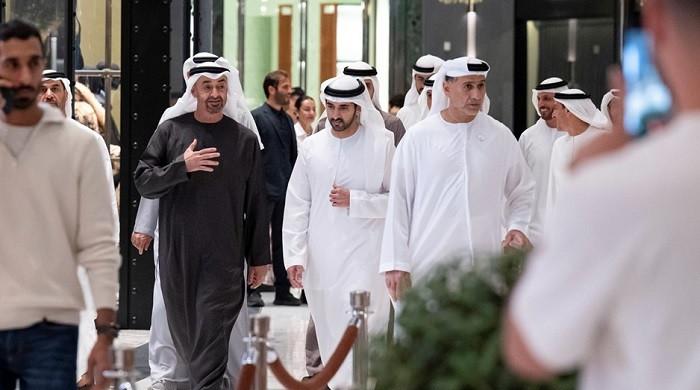

DUBAI: The President of the United Arab Emirates, Sheikh Mohammed bin Zayed Al Nahyan, observed iftar at Dubai Mall alongside senior members of the leadership, including the Crown Prince of Dubai, Sheikh Hamdan bin Mohammed bin Rashid Al Maktoum.
The iftar took place within the mall premises with members of the UAE leadership present, underscoring a message of unity, stability and resilience.
The gathering came amid regional tensions, with officials repeatedly stating that the country remains safe and secure.
Video circulating on social media showed the leaders moving through the venue, where shoppers gathered and waved as they passed.
Many visitors appeared surprised to see the UAE leadership at the location.
In one widely shared moment, a visitor from Ghana expressed excitement after meeting the President, describing the encounter as memorable. The President exchanged brief words with him and wished him an enjoyable stay.
The public presence drew attention inside the busy shopping destination, often described as one of the world’s largest malls.
Politics
IRGC targets US intelligence centers, military depots in 11th wave of attacks
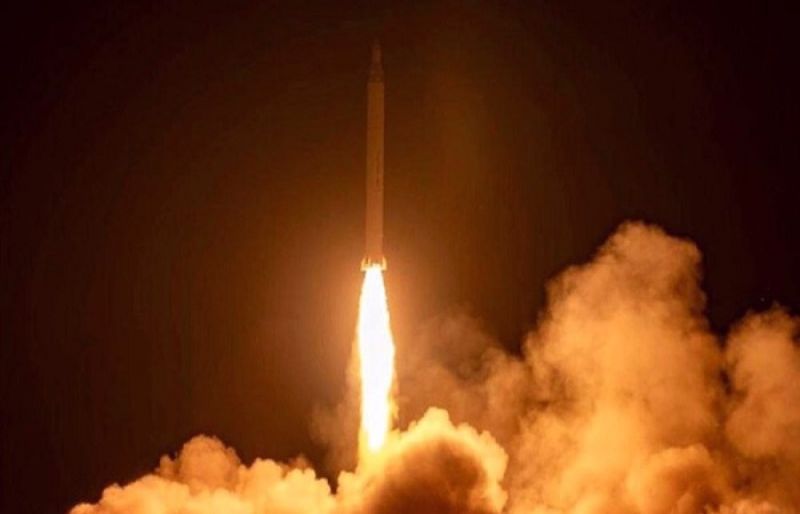

The Iranian armed forces have started a new wave of extensive drone and missile attacks on targets in the Israeli-occupied territories and US assets in regional countries.
A late Monday statement from the Islamic Revolution Guards Corps (IRGC) said that the 11th wave of offensive attacks under Operation True Promise 4 had been launched by the naval and aerospace units of the elite force.
The statement said the “extensive and high-density operation” had targeted American intelligence centers and military support warehouses in the Persian Gulf region, the Israeli communications industries complex in the occupied city of Beersheba, as well as 20 locations in the occupied regions of Tel Aviv, West al-Quds, and Galilee.
It said the “brave sons of Iran’s armed forces” had used more than 700 drones and hundreds of missiles to hit 60 strategic targets and 500 military locations linked to the United States and the Israeli regime since the start of the US-Israeli aggression on Iran on Saturday.
The statement said the number of missiles and drones and the success rate of the attacks had far outpaced records seen during the 12-day war with Israel and the US in June 2025.
The IRGC said recent “brutal and terrorist” attacks on Iran that targeted citizens in hospitals, schools, and offices of the national media service (IRIB) had further strengthened their resolve and determination to pursue an all-out war against the enemies.
The IRGC has been carrying out retaliatory attacks on US military assets across the region and on targets in the Israeli-occupied territories since Saturday, when the US and Israel started the unprovoked war of aggression against Iran and assassinated Leader of the Islamic Revolution Ayatollah Seyyed Ali Khamenei.
Politics
Israeli PM’s fate unclear after ‘surprise’ missile attack on his office: IRGC
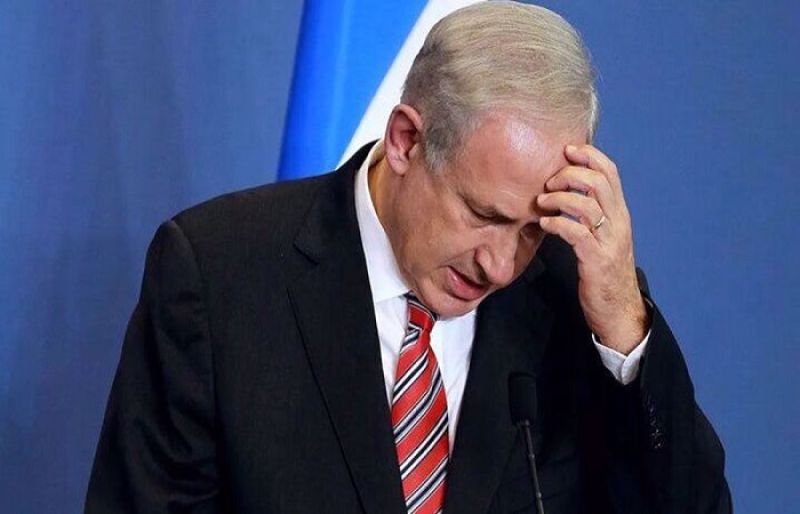

The Islamic Revolution Guards Corps (IRGC) says the fate of Israeli prime minister Benjamin Netanyahu is uncertain following “purposeful and surprise” attacks on his office and the residence of the regime’s air force commander.
In a statement on Monday, the IRGC said Iranian Armed Forces heavily attacked the office of Israel’s criminal prime minister and the residence of commander of the Israeli air force.
They were hit during “purposeful and surprise” attacks by Kheybar missiles, the elite force stated.
According to the statement, the 10th phase of Iran’s successful missile attacks on occupied territories focuses on the Israeli regime’s premises.
The IRGC said it would later announce the achievements of the attacks and provide further information.
The United States and Israel launched a joint war of aggression against Iran early on Saturday, assassinating Leader of the Islamic Revolution Ayatollah Seyyed Ali Khamenei and several senior military commanders before attacking military and civilian sites across the country.
Iranian armed forces have responded with massive missile and drone strikes, hitting strategic targets deep inside the Israeli-occupied territories as well as American military bases scattered across the region.
Iranian authorities say the retaliatory attacks will continue as long as necessary and that it will be the Islamic Republic that will decide when and how the war will end.
-

 Business6 days ago
Business6 days agoHouseholds set for lower energy bills amid price cap shake-up
-

 Politics5 days ago
Politics5 days agoWhat are Iran’s ballistic missile capabilities?
-
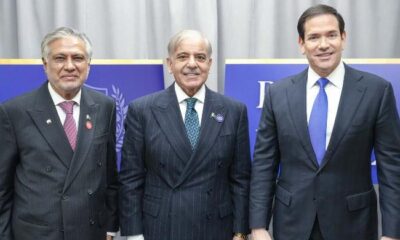
 Entertainment1 week ago
Entertainment1 week agoTalking minerals and megawatts
-

 Sports1 week ago
Sports1 week agoEileen Gu comments on Alysa Liu’s historic gold medal
-

 Business6 days ago
Business6 days agoLucid widely misses earnings expectations, forecasts continued EV growth in 2026
-

 Politics1 week ago
Politics1 week agoSupreme Court ruling angers Trump: Global tariffs to rise from 10% to 15%
-

 Sports1 week ago
Sports1 week agoSouth Africa thrash India by 76 runs in T20 World Cup Super 8 – SUCH TV
-

 Business1 week ago
Business1 week agoGovt to return unclaimed EPFO deposits, expand scholarships for unorganised workers’ children – The Times of India






